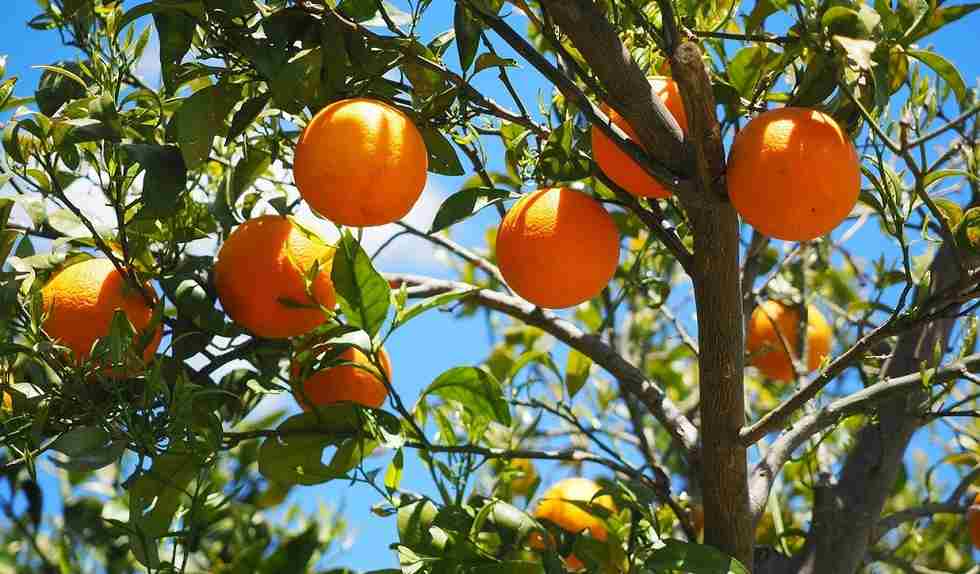Citrus fruit trees are wonderful plants to have in your garden. They produce sweet, juicy fruit that can be enjoyed year-round. They are also aesthetically pleasing.
Citrus fruits are a good source of vitamin C and other nutrients. Citrus trees can be grown from seed, but it is usually more practical to buy a young tree that the nursery has already started.
Grafted citrus plants are also available for those who want fruit as soon as possible or have special needs such as disease resistance. They require very little maintenance and are relatively inexpensive to purchase. However, if you want your citrus trees to continue producing fruit for long, you must provide them with the right care, so they don’t die prematurely. Here are some expert tips for taking care of citrus trees and keeping them healthy.
1. Water regularly
Citrus trees need about an inch of water per week, either from rainfall or irrigation. Ensure the soil is moist but not soggy; if it’s too wet, the roots will rot. Regular watering ensures that the tree will withstand periods of drought. Apply irrigation mechanisms such as drip irrigation, which applies water slowly and directly to the soil. This is more efficient than overhead watering, which can wet the leaves and increase disease risk. When watering your citrus tree, be sure to get water on the entire root system. Pour it around the tree in a circle until it starts running out from under the canopy.
Importance of regular watering
- Prevents the citrus tree from wilting.
- Provides the necessary moisture for the fruit to grow.
- Maintains soil health.
- Prevents root rot.
2. Fertilize regularly
Citrus trees need regular fertilization to ensure a healthy, productive harvest. Apply fertilizer according to the directions on the package. Use a balanced fertilizer such as 16-16-16 or 20-20-20 every six months. Fertilize in spring and again in late summer/early fall. Be careful not to overfertilize. Too much nitrogen can cause the tree to produce excessive amounts of leaves. Also, it can cause poor growth and reduced fruit production.
Reasons for regular fertilization
- Prevents nutrient deficiencies that can cause poor growth and reduced fruit production.
- Prevents excessive vegetative growth, which could shade the developing fruit, causing them to drop off before maturity.
- Promotes healthy root development for better water absorption and disease resistance.
3. Control pests
Citrus trees are prone to many pest problems. Keep an eye out for black, cottony masses on the branches, which could be scale insects or white fluffs that resemble moth eggs- these are signs of citrus gall wasps and bagworms, respectively. Control both with a pesticide spray labeled for use against those specific issues. Insecticidal soap or horticultural oil can also be used.
Other pests that can infest citrus trees include aphids, mealybugs, spider mites, and thrips. All of these can be controlled with a pesticide spray labeled against those specific pests. Tree Masters provides expert tree service and tree removal to homeowners and businesses.
Why control pests?
- Prevents damage to the tree.
- Prevents the spread of disease.
- Maintains fruit quality and prevents premature drop.
- Ensures a healthy, productive harvest.
4. Prun your citrus trees
Prune your citrus trees every year to keep them healthy and productive. Citrus branches are delicate, so be careful when you’re pruning. Use sharp garden shears or loppers for the job. Even though it’s tempting, do not over prune to produce fruit faster or bigger- this will weaken the tree by removing too many nutrients and energy from the fruit.
For pruning your citrus tree:
1. Remove dead or diseased branches first.
2. Make cuts at an angle just above a bud that faces outwards for best results.
3. Cutaway any small shoots growing on the main branch to allow more sunlight and air circulation into the center of the canopy where new fruit will grow.
Purpose of pruning
- Promotes healthy growth.
- Ensures good fruit production.
- Removes dead or diseased branches.
- Keeps the canopy open for sunlight and air circulation.
5. Facilitate pollination
Citrus trees are self-fertile, but they will produce more fruit if another citrus tree pollinates them. If you don’t have another citrus tree nearby, you can use a small paintbrush to transfer pollen from the male flowers to the female flowers. Pollination is most successful when done in the morning.
Importance of pollination
- Ensures good fruit production.
- Promotes healthy growth and better flavor in the fruits produced.
- Facilitates seedless fruit formation for easy peeling, slicing, or sectioning at serving time.
- Ensures good cross-pollination for a healthy tree
Final Thoughts:
Citrus trees require regular care and attention to produce healthy, flavorful fruit. Well-maintained trees will provide you with a bountiful harvest for years. They are also a great source of income. Failure to take care of citrus fruit trees can result in decreased fruit production, damaged trees, and increased pests. Following the tips in this article will help you keep your citrus trees healthy and productive. They will also enable you to earn a good living from your orchard.

















